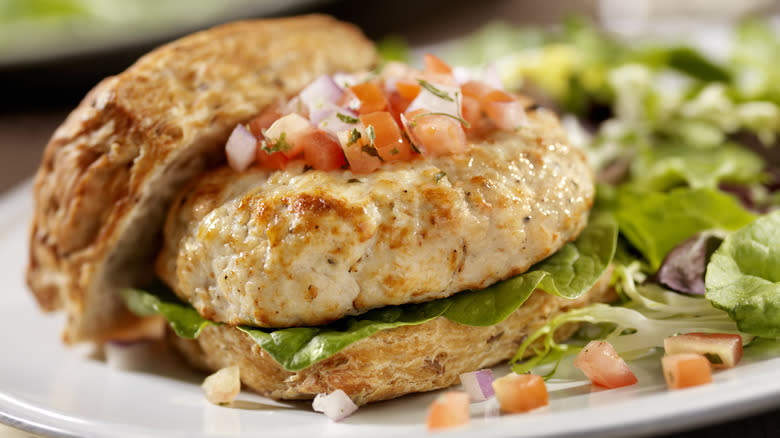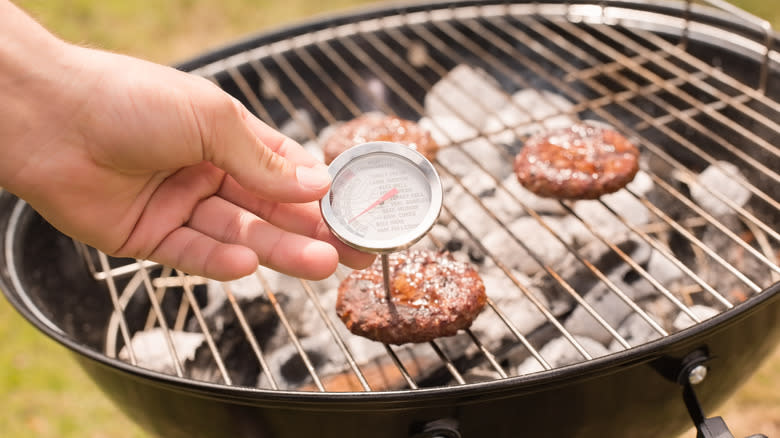The Ideal Internal Temperature For Perfectly Cooked Turkey Burgers

When it isn't beef you seek but the craving for a burger hits hard, turkey makes for a great alternative patty that still satisfies. However, while beef burgers are typically ordered cooked to the internal temperature or doneness that you desire, turkey burgers need to be cooked thoroughly before consumption. Honestly, all undercooked meat carries the risk of harboring pathogens but poultry conjures up a special caution due to fears of salmonella.
Thus, it is important to properly gauge the internal temperature of your turkey burger before you take it off the heat. This is one of the real reasons you actually need a meat thermometer, which is a tool every cook should have. The temperature you should aim for with this type of meat is 165 degrees Fahrenheit, per the USDA. That comes with a caveat, though.
While the final temperature should hit this mark to ensure foodborne pathogens are killed off, that isn't the temperature the turkey burger should be at when it comes off the grill. Carryover cooking happens when the residual heat left in an item exposed to heat causes it to continue to rise in temperature even after cooking is over. This means you should remove the turkey burger from the heat at 160 degrees Fahrenheit and let it rest while the temperature increases while monitoring the rise with your internal probe thermometer in place.
Read more: 13 Underrated Cuts Of Meat You Should Be Grilling
Keeping Turkey Burgers Safe And Juicy

Not everyone has access to an internal probe thermometer when they are cooking turkey burgers. That doesn't mean you can't gauge the doneness of your patties, it just means it won't be as precise as a reading with a thermometer. One tried and true method is the poke test. Heating causes the proteins in meat to tighten up. Rare meat, such as in an undercooked turkey burger, will feel soft. Conversely, meat that is cooked through will be springier. However, you shouldn't just rely on the hand trick to check meat's doneness if possible, as a thermometer is always the best bet.
And while turkey is much leaner than beef which is often the appeal of turkey burgers, that means it has a much greater risk of drying out and becoming mealy, especially when cooked to the proper temperature. The good news is there are several ways to keep turkey burgers succulent while still cooking them to a safe temperature. Baking soda can help the meat retain moisture by manipulating the protein structure, and a bit of plain gelatin can cling to moisture and help keep it in the burger during cooking.
Finely chopped mushrooms and other vegetables can also be added to boost the moisture content and counteract what is lost during cooking. If fat content isn't an issue, for a turkey burger recipe that's actually juicy, we recommend adding a healthy dollop of mayo and goat milk into the meat for added richness and flavor. With these recommendations in mind, your next patty will not only be tasty, it will be succulent.
Read the original article on Tasting Table

